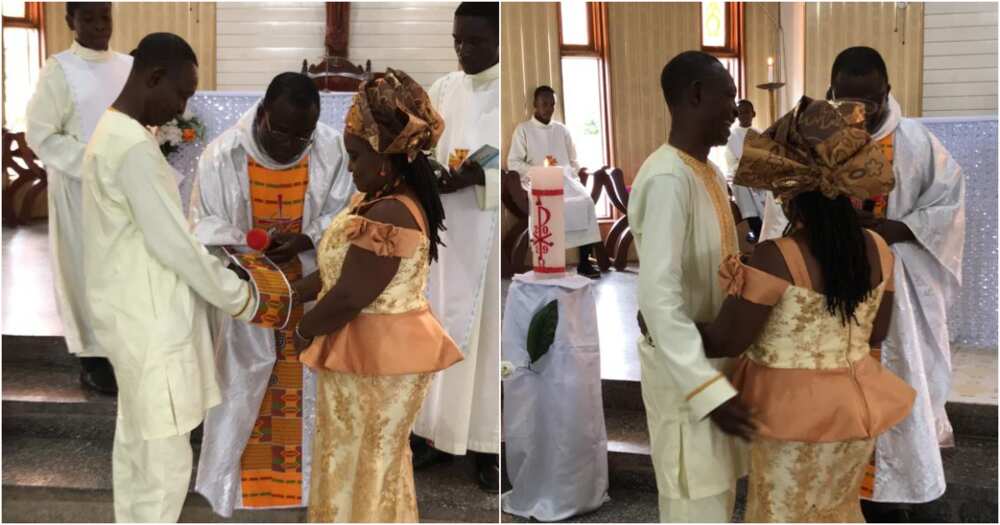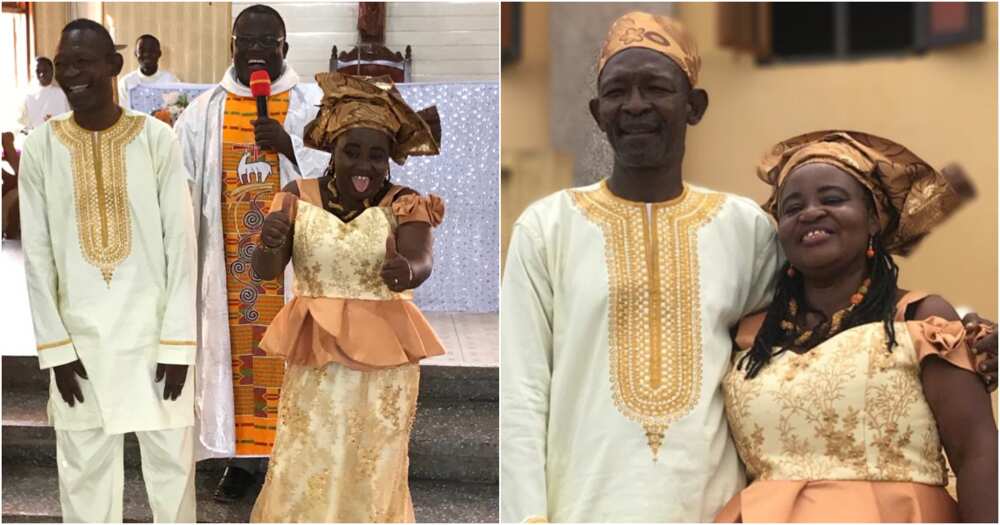Muslim man and his Christian wife who did not bless their marriage when they tied the knot finally had a church wedding after 37 years (photos)
- A couple could not bless their marriage when they tied the knot years ago
- After 37 years of marriage, the couple finally blessed their union in a church
- The Muslim husband and Christian wife could not bless their marriage due to religious differences
Love truly breaks all barriers, and it has done the same the case of this Nigerian love birds who have been married for thirty-seven years.
A Muslim man and his Christian wife have finally blessed their marriage after years of being married. The couple had been unable to bless their marriage in the church due to religious differences.
Legit.ng came across the amazing love story after their daughter, Fatima, shared their story on Facebook. Fatima explained that her father finally agreed to do Catholic marriage rites on Sunday, May 26.

Muslim man and his Christian wife bless their marriage in church after 37 years Twitter source: Fatima
Source: Twitter
READ ALSO: FFK’s wife celebrate birthday with their triplets, share stunning photos
Fatima shared photos of her parents while their union was being blessed in church. She expressed that her mother was finally able to take communion in church for the first time since she got married.
PAY ATTENTION: Read best news on Nigeria's #1 news app
The daughter expressed that she is so happy for parents. Her parents truly looked happy in the photos.
PAY ATTENTION: Get your daily relationship tips and advice on Africa Love Aid group

The couple decided to bless their marriage after years of being married Twitter source: Fatima
Source: Twitter
According to Fatima, she and her siblings have Muslim names, but they are all practicing Christians, except her. She noted that she is non-religious, and her parents her still trying to figure out what that means.
READ ALSO: NAIJ.com upgrades to Legit.ng: a letter from our Editor-in-Chief Bayo Olupohunda
Meanwhile, Legit.ng had earlier reported that a young Nigerian man had made a declaration about who he would marry. The young man had declared that he would marry whomever he wants irrespective of genotype.
NAIJ.com (naija.ng) -> Legit.ng We have upgraded to serve you better
Religion is not Nigeria’s problem - Onos Ariyo - on Legit TV | Star Chat
Source: Legit Newspaper
from Nigeria News Today & Breaking Naija News 24/7 | LEGIT.NG http://bit.ly/2wrhj3y
via EDUPEDIA24/7
Comments
Post a Comment